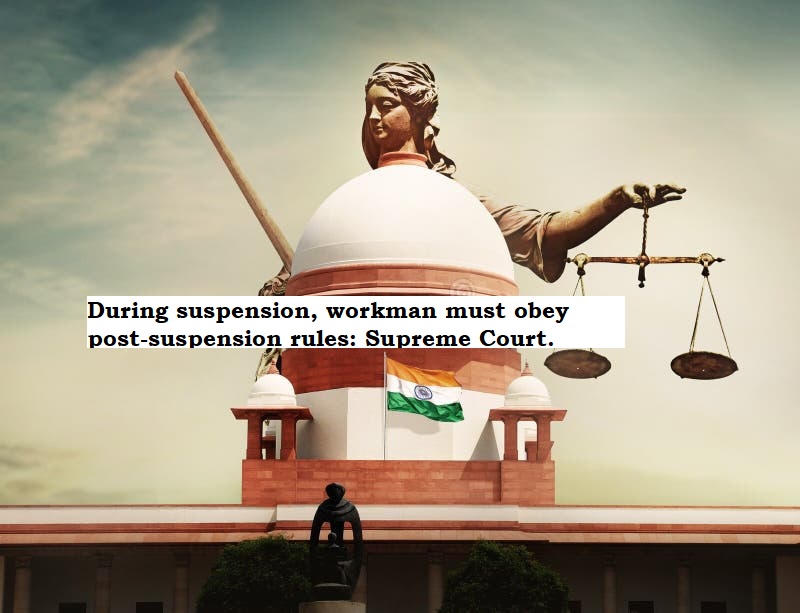


The Supreme Court, led by Justices Hima Kohli and Rajesh Bindal, addressed a case on December 14, emphasizing the continuity of the master-servant relationship during a suspension period. The court ruled that a workman, despite being suspended, remains obligated to adhere to all rules governing their post during that time.
In the specific case, the petitioner, a clerk-cum-cashier at a bank, faced suspension in June 1982 due to disorderly behavior. Following an inquiry that found him guilty, the bank imposed a punishment of stopping two graded increments with cumulative effect on September 28, 1983. Simultaneously, the petitioner was instructed to report for duty at another branch office, Bhagwantnagar, Unnao. However, on failing to comply, he was deemed to have voluntarily retired on December 5, 1984, based on Clause XVI of the Bipartite Agreement.
The petitioner challenged this deemed retirement after six years, contending that the order was illegal. He argued that he could not be kept in suspension after the punishment order, as reinstatement was contingent on joining the new posting. Additionally, he cited difficulties in complying with the transfer order, the lack of subsistence allowance payment, and asserted that the transfer could only occur after reinstatement.
The bank countered, highlighting the petitioner's continued misbehavior, non-compliance with orders, and disruptive actions, including a hunger strike. The respondent argued that the petitioner, by dragging disputes through various levels, displayed unacceptable indiscipline, and deserved no relief.
The court observed that, after the 1983 punishment order, the petitioner became a lawyer in 1985, handling cases for the Union and other bank employees. It noted that the petitioner never challenged the punishment or transfer order in court, effectively accepting their finality. Despite multiple opportunities, the petitioner did not join the new posting, persistently making representations to the bank.
Referring to Clause XVI of the Bipartite Agreement, the court noted that when a workman remains absent for 90 consecutive days without leave application, the bank can deem the employee to have voluntarily retired after a 30-day notice. The court suggested that the workman could have been treated as voluntarily retired immediately after 90 days from September 28, 1983, considering his failure to return to duty. The bank, showing leniency, issued a final notice on October 5, 1984, granting the workman 30 days to report for duty, which he failed to comply with.
Addressing the six-year delay in disputing the transfer's legality, the court held that a person cannot unilaterally decide an order is illegal while sitting at home and disregard compliance. Failure to seek a remedy implies acceptance of the order, and later claiming the order's error does not excuse non-compliance.
In conclusion, the court affirmed the master-servant relationship during suspension, emphasized the workman's obligation to follow post-suspension rules, and upheld the deemed retirement based on the circumstances and the Bipartite Agreement. The court rejected the petitioner's arguments, considering his actions, delay, and failure to avail remedies.
TAGS: Clause XVI Bank's Association Workmen Unions Assistant Labour Commissioner Tribunal High Court Writ petition Misbehavior